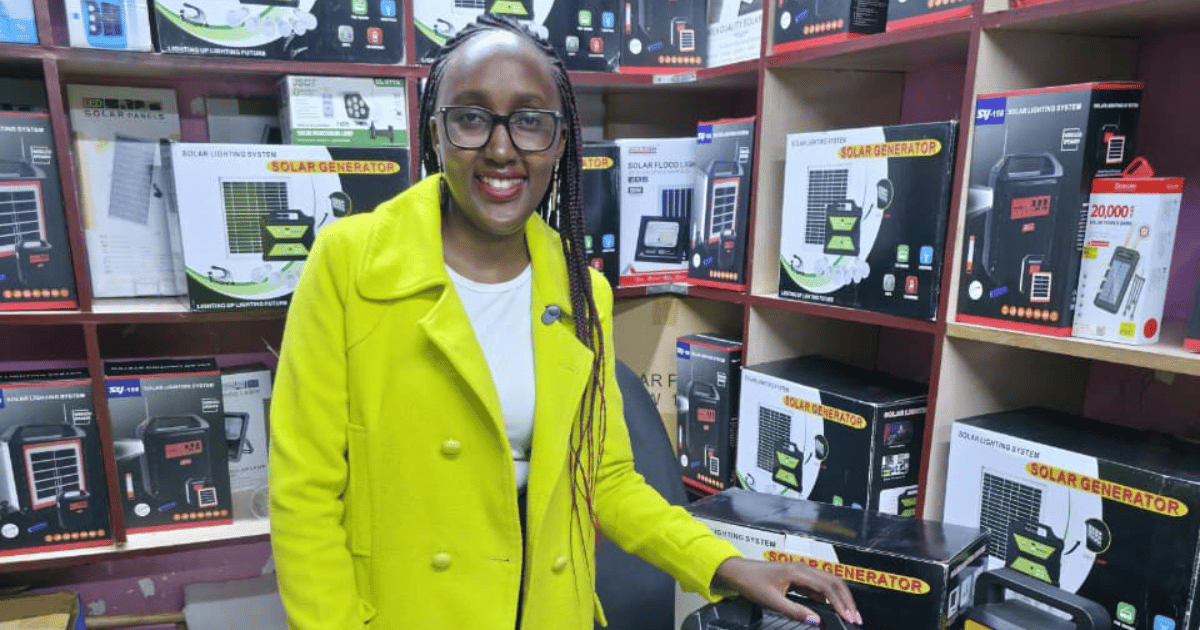- Renewables Rising
- Posts
- Consumer View: Customers are spending more on batteries
Consumer View: Customers are spending more on batteries

From the newsletter
Betty Thuku, a Kenyan entrepreneur and owner of the Solar Planet business, has been selling solar products since 2017. In an interview with Renewables Rising, she reveals trends and consumer behaviours and how they have evolved over the past few years. Firstly, customers are buying more batteries than ever due to a reduction in prices and improved quality.
Consumer demand for solar products in Nairobi is at an all-time high, she reveals. Many customers now rely primarily on solar home systems for their energy needs, turning to the grid only during periods of unstable weather.
With ongoing improvements in battery technology, Ms Thuku anticipates increased uptake of storage solutions as customers seek reliable power backup.
More details
Betty’s reasoning for increased battery storage purchases might be a result of her own investments in backup power equipment. She has installed an inverter and a battery system at her own house in Nairobi.
Her company specialises predominantly in solar solutions, but her product range is broader. The catalogue includes solar water pumps, solar water heaters, solar panels, inverters, batteries, as well as small solar-powered household appliances such as radios and TVs.
While the core customer base is rural Kenya, Betty has observed substantial interest from various groups. Religious institutions, particularly churches, are buying solar-powered lights for security purposes. Others include large-scale farmers seeking solutions that allow farming throughout the year, and real estate developers who install solar in every house within their estate projects. Schools and educational institutions are also increasingly tapping into the sun’s potential with solar.
Beyond batteries, demand for solar home systems capable of powering appliances has risen in recent years. Customers want reliable power for small radios and television sets.
When discussing customer preferences, Betty notes that solar-powered water pumps are the least purchased item. Ideal for remote farms that are not connected to the national power grid, she attributes this to their higher price point, which may discourage potential buyers.
A challenge for the business, she acknowledges, is consumer trust, primarily because her company operates from Nairobi while most customers live in remote areas. Timely delivery of orders helps to build confidence and strong interpersonal skills, including effective customer service, and eases the buying experience. Historically, financing was a major barrier to solar purchases, but concerns now centre more on product quality and reliable delivery.
As her company expands partnerships and continues to import higher-quality renewable energy solutions, Betty envisions a robust green energy future in Kenya, with more people shifting away from the grid towards clean energy alternatives.